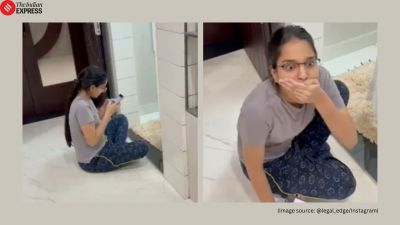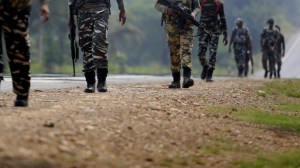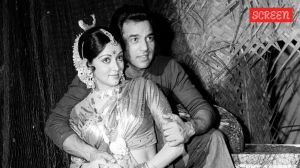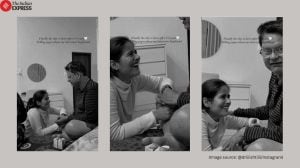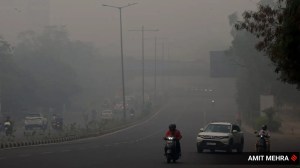For the first time since a Bill to reserve seats for women was introduced in 1996 under Prime Minister H D Deve Gowda, the ‘social justice’ parties — which once saw the forward-vs-backward discourse as the central fault line of Indian politics — have cautiously agreed to put their stamp of approval on the legislation.

While these parties had stuck to their stand earlier that there be reservation within the women quota for SC/STs as well as OBCs, the new legislation calls for 33% seats for women within the SC/ST share, and does not talk about OBCs.
There are several reasons for the Mandal parties coming around on the issue: the emergence of women as voters, caste politics fragmenting into multiple individual caste interests (many of whom vote for the BJP), the falling charisma of the Mandal leadership in Parliament, and the depleting numbers of the SP and RJD in the House.
“The stalwarts of social justice parties are no longer there in Parliament. There is no leadership now. That is a fact,” an Opposition MP said on condition of anonymity, pointing out that even the Congress has taken up the OBC narrative now.
The Congress is seen to have paid the price for ignoring OBCs in north India after Independence – depending on a rainbow coalition of upper castes, Dalits and Muslims to come to power for decades – allowing the BJP to fill the space.
Congress joins the call for OBC quota
Turned off by the Congress’s disregard for them, OBCs in UP and Bihar were not with the Congress even in its heyday, preferring the socialist politics of Ram Manohar Lohia and the farmer politics of Chaudhary Charan Singh.
Story continues below this ad
Now, the Congress too has joined the call for OBC quota within women’s reservation, its outreach coming at the same time, significantly, as social justice parties become increasingly conscious about how they are perceived by the larger society.
The seeming convergence of positions within the INDIA grouping on women’s reservation has another crucial implication – it saves the alliance the embarrassment of taking contradictory positions on a legislation of such importance, something the government would have loved.
The contrast with the past could not have been starker – and one that the BJP underlined during the debate on the women’s Bill.
After the legislation was introduced for the first time, in 1996, Janata Dal leader Sharad Yadav had contemptuously said that women’s reservation would benefit only ‘par-katis’ – his barb meant to imply urban, largely upper caste and upper class women. In 2010, by then in the JD(U), Yadav was snubbed by party chief Nitish Kumar, who decided to support the Bill in the Rajya Sabha, brought at the time by the UPA government.
Story continues below this ad
In fact, after the Bill was passed, Sharad Yadav took part in an impromptu protest with SP leader Mulayam Singh Yadav and RJD leader Lalu Prasad in front of the Gandhi statue in Parliament complex. Sharad Yadav and Mulayam are now deceased.
 (Express photo by Renuka Puri)
(Express photo by Renuka Puri)
The new SP chief, Mulayam’s son Akhilesh Yadav, has taken a position aligned with the Congress – supporting the Bill while expressing concern over it not factoring in OBCs within the quota. Additionally, the SP has called for the Bill to set aside seats for women from religious minorities.
“We voted for the Bill, but with queries. We wanted an OBC quota, a minority quota and immediate implementation of women’s reservation,” SP Lok Sabha MP S T Hasan told The Indian Express.
With the SP showing its cards, all eyes are now on the RJD, which has no Lok Sabha MP but is present in the Rajya Sabha, and has also been an unequivocal opponent of the Bill without an OBC sub-quota. The RJD is ultimately expected to act the way the SP did, though. “We will expose the insincerity of the government on immediate implementation of women’s reservation and its exclusion of the social justice agenda,” RJD Rajya Sabha MP Manoj Jha told The Indian Express on Thursday morning.
Story continues below this ad
Requesting anonymity, a source in the RJD said that the broader perception of the people about the party was also important, apart from flagging the party’s core concerns regarding the Bill. “Had the SP walked out, how would the media have presented it? Would they have not said that the party is against a progressive measure?” the RJD leader said.
But, apart from perception, the Mandal parties are also cognizant of the fact that the fundamental backward-vs-forward faultline is passe, with the SP and RJD themselves facing charges of becoming Yadav-centric to the exclusion of other OBC classes, and the BJP giving them a tough fight on OBC votes.
“Instead of a homogeneous backward class identity, which the SP and RJD had tried to project two decades ago, what we have are fragmented backward castes with their individual demands and leaders. So, trying to position the debate on a backward-forward binary does not have purchase today,” says sociologist Surender Singh Jodhka, who specialises on caste.
Jodhka also points to the growing importance of women voters, in line with a rise in their autonomy and agency.
Story continues below this ad
Academic A K Verma, who is an expert on the SP, says it would have been very difficult for the party to oppose the Bill when elections are near.
Political scientist Sajjan Kumar adds, “The BJP’s huge outreach among the most marginalised sections of OBCs and Dalits has turned the gaze sharply on dominant OBC castes like Yadavs, and this has made SP, which hasn’t been able to defeat the BJP in UP since 2014, more cautious about how it is perceived by multiple social constituencies.”
As per data collated by the Trivedi Centre for Political Data at Ashoka University, the Yadav component in the UP Assembly fell to 17% of OBC MLAs in 2017 — when the BJP stormed to power in UP — while the Kurmi component rose from 11% to 28%.
The BJP’s deepening inroads into OBCs and sections of Dalits over the last few years have also convinced Mandal parties that there are very few committed backward caste blocs voting for them. So, evoking Mandal in an unsuccessful bid to block the women’s Bill could have been counterproductive and isolated them.
Story continues below this ad
As per CSDS-Lokniti figures, the BJP secured 60% of the non-Yadav OBC votes in Uttar Pradesh in 2022. Another CSDS-Lokniti survey said that the BJP’s pan-Indian vote share among the most backward classes went up from 24% to 42% under Modi. Its vote share among Dalits increased from 24% to 34% between 2014 and 2019.
The fact that it feels no pressure to field Muslims means the BJP also has more seats it can offer to these castes than the Congress and regional parties.
With inputs from Manoj C G

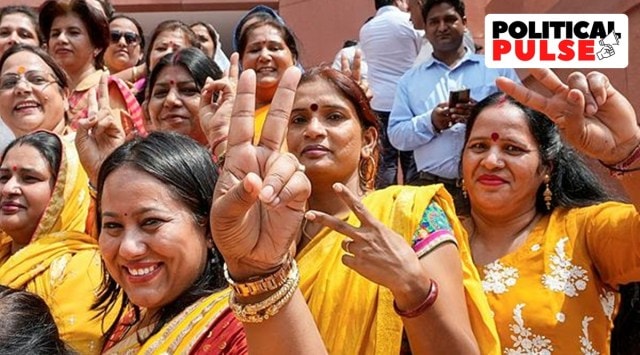

 (Express photo by Renuka Puri)
(Express photo by Renuka Puri)
